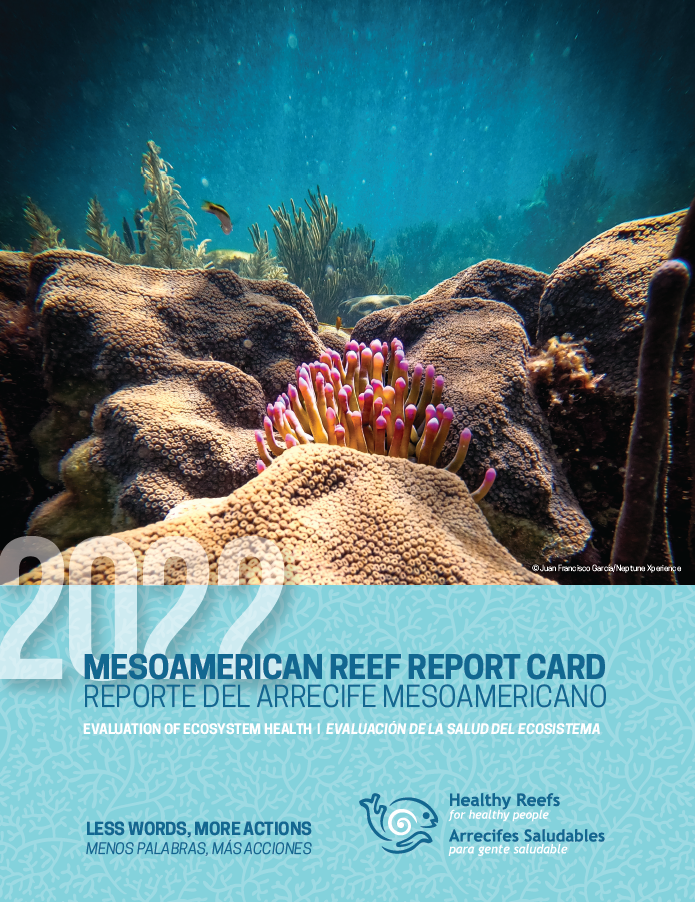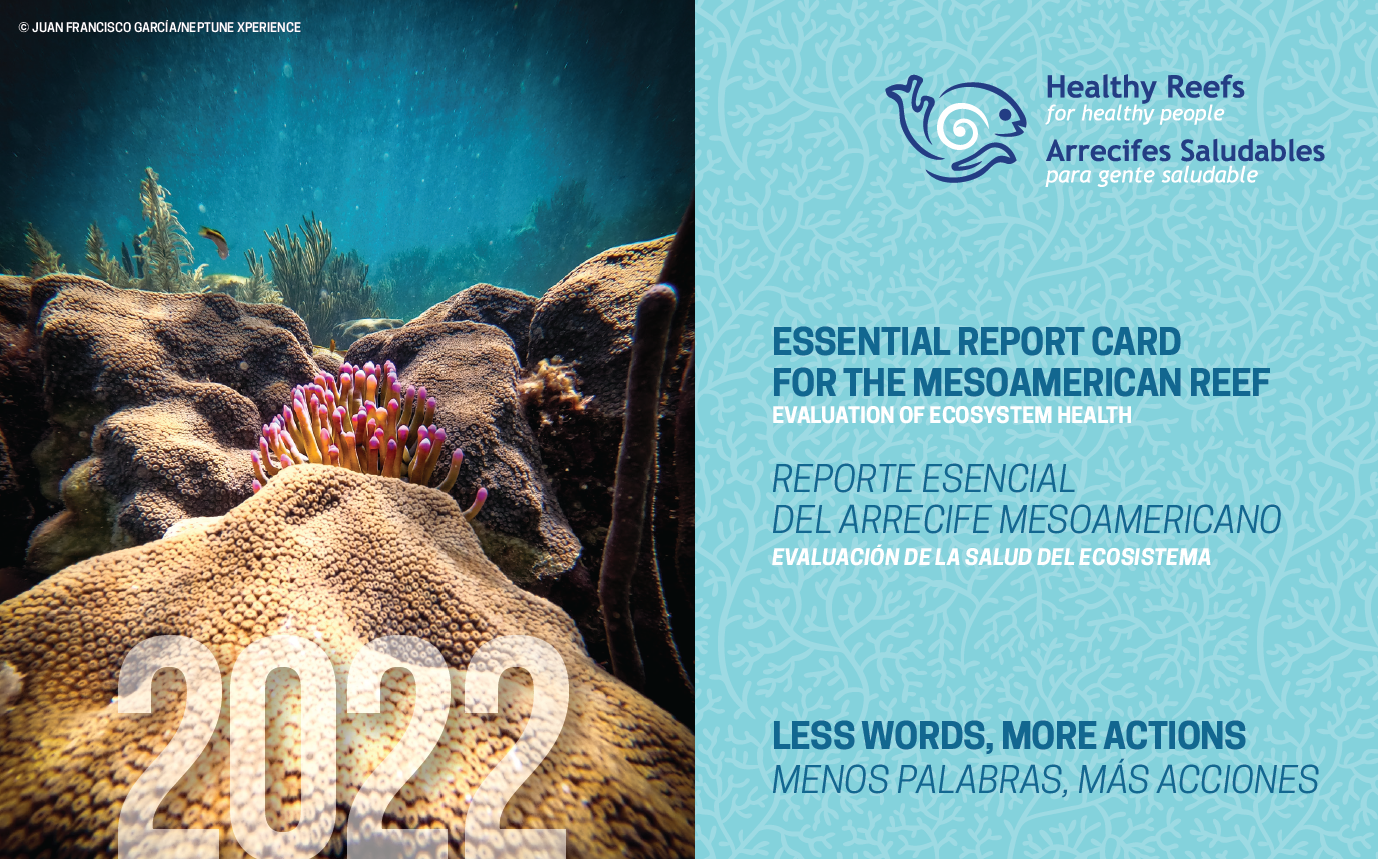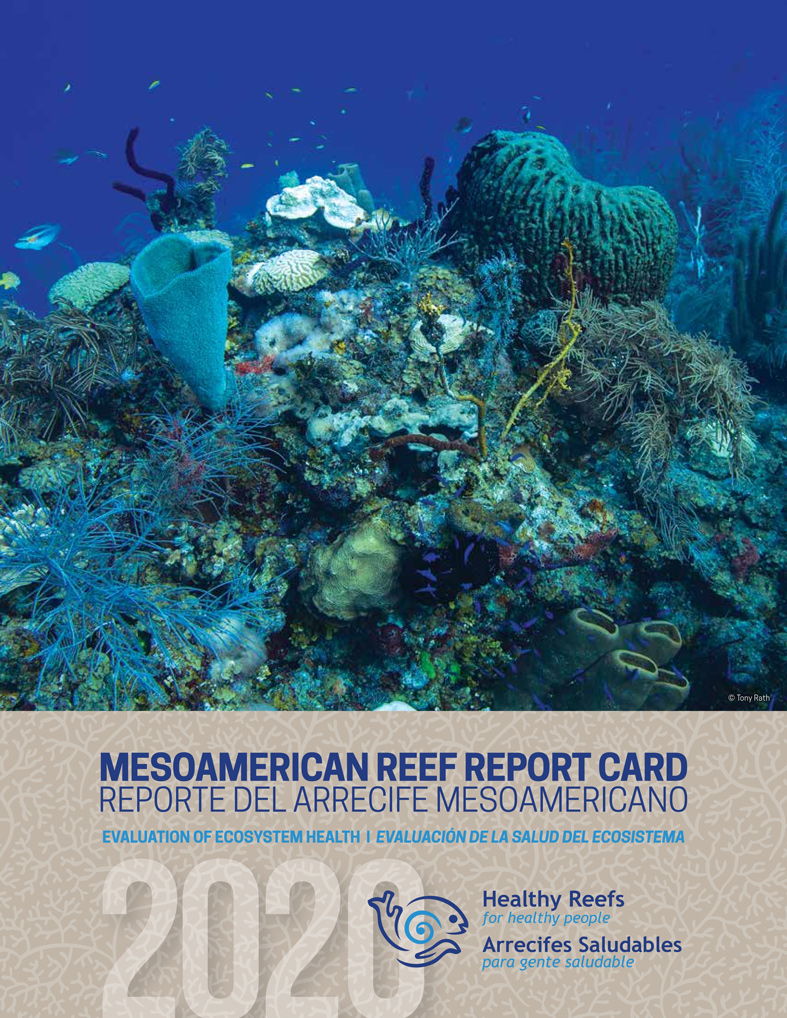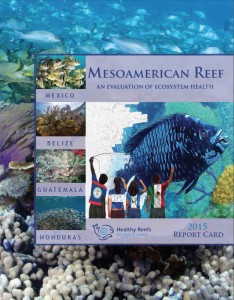2022 REPORT CARD
Less than ten percent of the Mesoamerican Reef coral reef area is fully protected from fishing, with three out of four countries now having critically low grouper and snapper biomass.
ESSENTIALS REPORT 2022
Five years of failing health in the Mesoamerican Reef, after a decade of improvement.
EVALUATION OF ECOSYSTEM HEALTH
THREATENED REEFS
The 2020 Healthy Reefs Report Card is a collaborative effort of 82 data collectors from 26 organizations of our 73 partners. Most of the 286 sites monitored (46%) now rank poor vs 37% two years earlier. Good sites declined from 13% (2016) to 8% in this Report.
REEFS HAVE EXISTED FOR MILLENNIA. WITHOUT CLEAN WATER AND PLENTIFUL FISH, THEY MAY NOT SURVIVE THIS CENTURY.
REEF BUILDING CORALS FACE CRISIS
Stony coral tissue loss disease is the most lethal coral disease known. Within a year after its first sightings in the Mexican Caribbean in 2018, the disease quickly spread along its 450km coast—killing tens of thousands of corals.
PROTECTING OUR SHORELINES BY RESTORING OUR REEFS
Long-term coral restoration efforts in Belize have been successful in bringing back both reef. Over 5500 genetically diverse elkhorn and staghorn corals at 5 nurseries on Roatan and Utila are cared for by Bay Islands Reef Restoration, Roatan Marine Park.
INNOVATIVE RESTORATION TO REDUCE MACROALGAE
Caribbean king crabs (Maguimithrax spinosissimus) are large herbivores whose ecological role has been overlooked. They feed on macroalgae and their grazing rates may be higher than many parrotfish.
A DECADE OF MAKING A DIFFERENCE
The Mesoamerican Reef (MAR) supports our culture, fisheries, tourism, coastal protection and biodiversity. The Healthy Reefs Initiative (HRI) collectively and quantitatively assesses reef health and informs science-based management recommendations.
Over the past 10 years, we have conducted rigorous science in support of management. Our reliable measures of reef condition allow us to identify the most urgent threats and responses. HRI training workshops continue to strengthen scientific capacity.
Our partners are scaling-up and improving management in 47 MPAs spanning almost 60,000 km2. Through our Regional Coral BleachWatch Network, we have quickly mobilized and supported teams of partners across the region to monitor coral bleaching. HRI convenes annual partner meetings, enabling us to achieve a common voice and collectively accelerate conservation action. Together, we have shaped policy, such as protecting herbivorous fish in 3 of 4 countries.
It has been 20 years since the four country leaders signed the historic Tulum Declaration, committing to protect the MAR’s shared resources. Our science-based knowledge and collective management efforts need to be accelerated—particularly to reduce pollution and increase replenishment zones. Our 2018 Coral Reef Report Card includes a 10-year perspective on reef health and conservation aimed to ensure our reefs will endure and thrive into the future.












